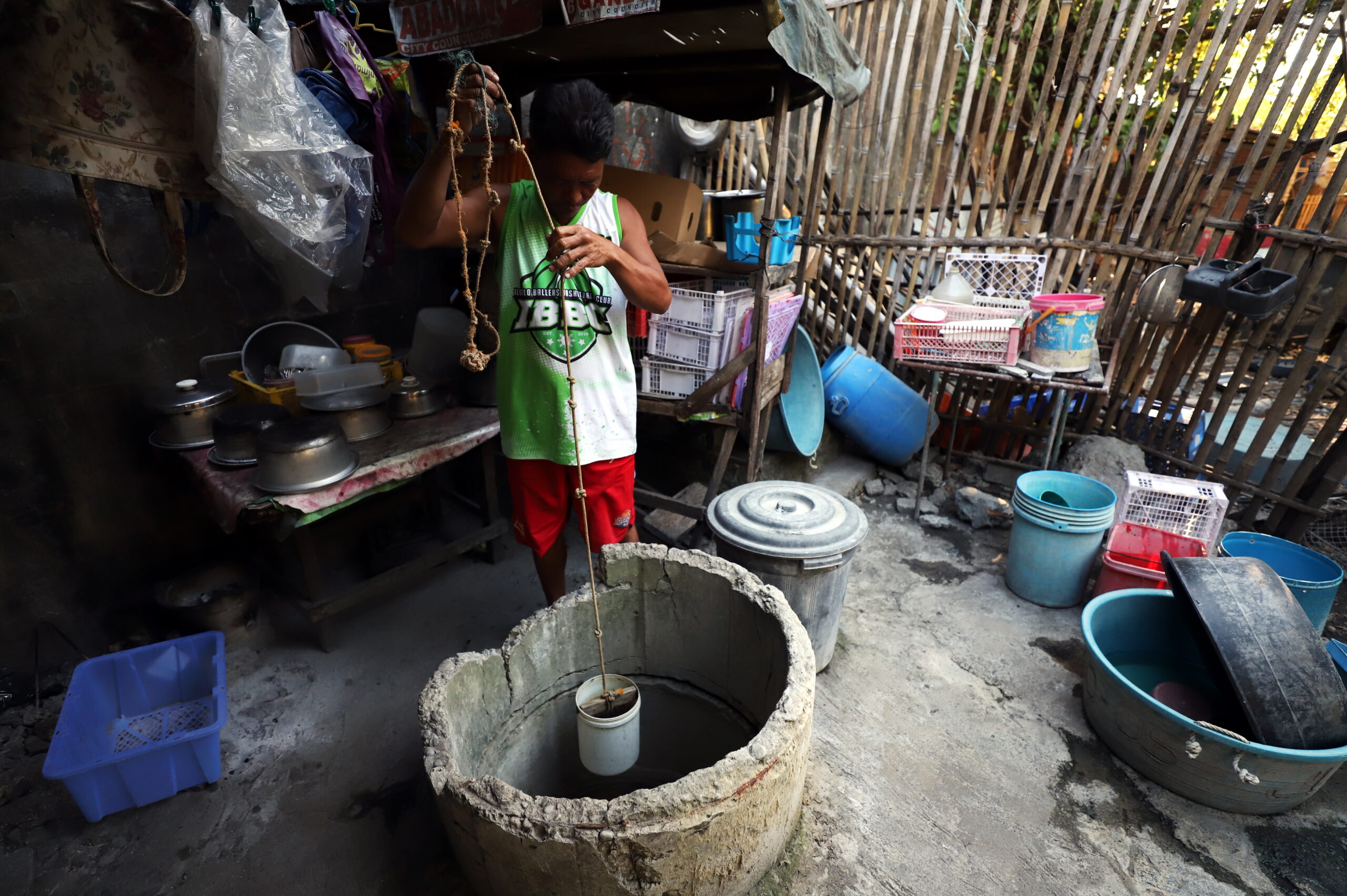As El Niño persists, more local gov’ts declare state of calamity

Mayor Jerry Treñas, Head of Management Council (CDRRMC) approved the council’s recommendation placing the city under the state calamity to access emergency funds and resources to address the water scarcity. The Iloilo City Disaster Risk Reduction is recommending placing the City under a state of calamity due to water shortage caused by the drought spell spawned by the El Niño phenomenon in Iloilo City. ARNOLD ALMACEN/ILOILO CITY MAYOR’S OFFICE
ILOILO CITY, Philippines — Iloilo City, Maguindanao del Sur and four towns of Cotabato province have joined the growing number of local government units (LGUs) that have declared a state of calamity amid huge agricultural losses caused by severe dry spell spawned by the El Niño phenomenon.
The declaration by the Iloilo City Council on Monday would enable the LGU to use P12.54 million from its quick response fund to procure 696,900 liters of water to be distributed to water-parched barangays for three months.
READ: 3 Mindanao towns under state of calamity due to El Niño
In Cotabato, the towns of M’lang, Alamada, Aleosan and Arakan placed their respective localities under a state of calamity last week, with crop and livestock damage in M’lang alone already reaching P345 million, local officials said.
On Monday, Maguindanao del Sur, also placed the entire province, composed of 24 towns, under a state of calamity. Earlier, the entire province of Sultan Kudarat also declared a state of calamity.
Induce rain
So far, at least 11 LGUs, mostly on Mindoro Island, have made similar declarations in Luzon; 12 in Western Visayas, including Iloilo City; and 11 in Mindanao, including the four Cotabato towns and the provinces of Sultan Kudarat and Maguindanao del Sur.
Iloilo City initially targeted 25 barangays to receive the water aid, based on the survey conducted using the city’s Calamity and Disaster Risk Assessment tool.
In Negros Occidental, a sugar industry leader has appealed to provincial officials to also place the LGU in a state of calamity so it could buy an airplane for cloud seeding to induce rain amid the worsening drought.
“Our sugar industry needs rain now. This will be the same problem next year so the provincial government should be ready to help the Island of Negros,” said Manuel Lamata, United Sugar Producers Federation president, in a public appeal to provincial government officials led by Gov. Eugenio Jose Lacson and Vice Gov. Jeffrey Ferrer.
“We should not wait for Manila to help us, we should help ourselves,” he added on Monday.
Lamata said the sugar industry has lost millions of pesos because of the drought.
The Bureau of Soils and Water Management has earlier recommended against cloud seeding in Negros Occidental, saying its studies showed that the province has no seedable clouds at this time.
Lacson has also said that the provincial government did not need to declare a state of calamity since it still has P8 million to P10 million to assist farmers affected by the drought.
As of April 18, the damage to rice and corn crops due to the drought in 25 towns and cities of Negros Occidental has reached P184,764,120 and affected 4,739 farmers, the Office of the Provincial Agriculturist said. In Cotabato, the P345-million crop and livestock damage in M’lang town affected all of its 37 barangays, according to Mayor Russel Abonado.
Cotabato’s losses
M’lang’s losses brought to P650 million the total damages that the current El Niño wrought on crops and livestock in the province, said Ruel Villanueva, administrative officer of the Provincial Agriculturist Office (PAO).
Agriculture losses in other parts of the province has reached P305 million, affecting the towns of Arakan, Alamada, Aleosan, Magpet and Pigcawayan and Kidapawan City, said Villanueva.
Among the most severely affected are crops like palay, corn, vegetables, bananas, other high-value crops, livestock and poultry, he said.
Abonado, in a radio interview in Kidapawan, said the drought-affected families in his town preferred to receive rice as relief intervention while the PAO said it would disperse seeds and water pumps to farmers’ groups to cushion the impact of the dry spell.
In Kidapawan City, El Niño has destroyed more than P17.8 million crops and livestock, affecting 178 farmers in 22 barangays who have lost their sources of livelihood, according to City Agriculturist Marisa Aton.
Cotabato Gov. Emmylou Mendoza has directed the agriculture office to link the farmers with the Philippine Crop Insurance Corporation (PCIC) to ensure that they can avail themselves of PCIC’s programs for the agriculture sector during calamities.
Earlier, Zamboanga City and Siocon town of Zamboanga del Norte were among the first to have declared a state of calamity in Mindanao because of the severe hot weather.
In South Cotabato, Surralah town declared a state of calamity after irrigation dams dried up and affected the irrigation system served by the Allah River, a river that traverses the adjoining towns of Lake Sebu, Surallah, Sto. Niño and Norala in South Cotabato; and Isulan and Esperanza in Sultan Kudarat, before draining its water into the Maguindanao marshland.
In Maguindanao del Sur, the towns of Datu Piang and Paglat declared themselves in calamity status during the first week of April, ahead of the province-wide declaration, as water sources dried up.